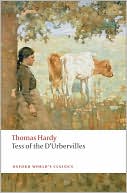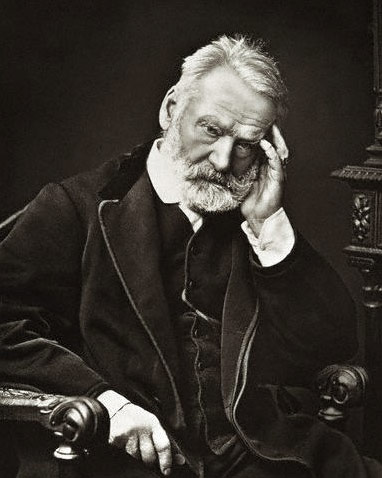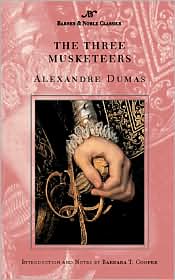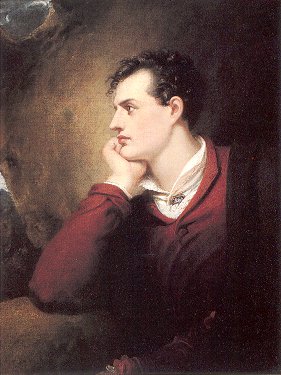 My commentary is finally complete. Alex Varughese has graciously and efficiently done the editing for both Ecclesiastes and Lamentations. The manuscript has been forwarded to the publisher for copy editing. Release date is planned for March 1, 2010.
My commentary is finally complete. Alex Varughese has graciously and efficiently done the editing for both Ecclesiastes and Lamentations. The manuscript has been forwarded to the publisher for copy editing. Release date is planned for March 1, 2010.
Tuesday, December 8, 2009
Commentary submitted to Publisher
 My commentary is finally complete. Alex Varughese has graciously and efficiently done the editing for both Ecclesiastes and Lamentations. The manuscript has been forwarded to the publisher for copy editing. Release date is planned for March 1, 2010.
My commentary is finally complete. Alex Varughese has graciously and efficiently done the editing for both Ecclesiastes and Lamentations. The manuscript has been forwarded to the publisher for copy editing. Release date is planned for March 1, 2010.
Wednesday, April 22, 2009
Carly Simon, Anticipation
 Connections with Ecclesiastes:
Connections with Ecclesiastes:Ziggy Marley: Good Old Days
 Connections with Ecclesiastes:
Connections with Ecclesiastes:These be the good ol' days
These be the good ol' days
These be the good ol' days
These be the good ol' days
These be the good ol' days
These be the good ol' days
Tuesday, April 21, 2009
Friday, March 27, 2009
Kipling--Gods of the Copybook Headings
That reminds me of Ecclesiastes. There is a serious challenge to the received wisdom, but in the end an unwillingness to let go of the doctrine of retribution. "but know thou, that for all these [things] God will bring thee into judgment" (Ecclesiastes 11:9).
| The Gods of the Copybook Headings |
| AS I PASS through my incarnations in every age and race, I make my proper prostrations to the Gods of the Market Place. Peering through reverent fingers I watch them flourish and fall, And the Gods of the Copybook Headings, I notice, outlast them all. We were living in trees when they met us. They showed us each in turn That Water would certainly wet us, as Fire would certainly burn: But we found them lacking in Uplift, Vision and Breadth of Mind, So we left them to teach the Gorillas while we followed the March of Mankind. We moved as the Spirit listed. They never altered their pace, Being neither cloud nor wind-borne like the Gods of the Market Place, But they always caught up with our progress, and presently word would come That a tribe had been wiped off its icefield, or the lights had gone out in Rome. With the Hopes that our World is built on they were utterly out of touch, They denied that the Moon was Stilton; they denied she was even Dutch; They denied that Wishes were Horses; they denied that a Pig had Wings; So we worshipped the Gods of the Market Who promised these beautiful things. When the Cambrian measures were forming, They promised perpetual peace. They swore, if we gave them our weapons, that the wars of the tribes would cease. But when we disarmed They sold us and delivered us bound to our foe, And the Gods of the Copybook Headings said: "Stick to the Devil you know." On the first Feminian Sandstones we were promised the Fuller Life (Which started by loving our neighbour and ended by loving his wife) Till our women had no more children and the men lost reason and faith, And the Gods of the Copybook Headings said: "The Wages of Sin is Death." In the Carboniferous Epoch we were promised abundance for all, By robbing selected Peter to pay for collective Paul; But, though we had plenty of money, there was nothing our money could buy, And the Gods of the Copybook Headings said: "If you don't work you die." Then the Gods of the Market tumbled, and their smooth-tongued wizards withdrew And the hearts of the meanest were humbled and began to believe it was true That All is not Gold that Glitters, and Two and Two make Four And the Gods of the Copybook Headings limped up to explain it once more. As it will be in the future, it was at the birth of Man There are only four things certain since Social Progress began. That the Dog returns to his Vomit and the Sow returns to her Mire, And the burnt Fool's bandaged finger goes wabbling back to the Fire; And that after this is accomplished, and the brave new world begins When all men are paid for existing and no man must pay for his sins, As surely as Water will wet us, as surely as Fire will burn, The Gods of the Copybook Headings with terror and slaughter return! |
Tuesday, March 24, 2009
I Surrender All
Saturday, March 7, 2009
Lord Byron, "All Is Vanity," Says the Preacher
by Lord Byron
(1788-1824)
Fame, wisdom, love, and power were mine,
And health and youth possessed me;
My goblets blushed from every vine,
And lovely forms caressed me;
I sunned my heart in beauty' eyes,
And felt my soul grow tender;
All earth can give, or mortal prize,
Was mine of regal splendour.
I strive to number o'er what days
Remembrance can discover,
Which all that life or earth displays
Would lure me to live over.
There rose no day, there rolled no hour
Of pleasure unembittered;
And not a trapping decked my power
That galled not while it glittered.
The serpent of the field, by art
And spells, is won from harming;
But that which soils around the heart,
Oh! who hath power of charming?
It will not list to wisdom's lore,
Nor music's voice can lure it;
But there it stings for evermore
The soul that must endure it.
All Is Vanity by Charles Gilbert
 This ambiguous illusion by Charles Gilbert is titled "All Is Vanity," signaling a conscious connection with Ecclesiastes. The painting faithfully reflects the ambiguity of the book since both portray simultaneously the beauty of life together with the certainty of approaching death. In the image, an innocent portrayal of a young woman before a mirror seems to project the image of a skull.
This ambiguous illusion by Charles Gilbert is titled "All Is Vanity," signaling a conscious connection with Ecclesiastes. The painting faithfully reflects the ambiguity of the book since both portray simultaneously the beauty of life together with the certainty of approaching death. In the image, an innocent portrayal of a young woman before a mirror seems to project the image of a skull.
The Sea-wolf by Jack London
 The Sea-wolf,
The Sea-wolf,In The Sea-Wolf by Jack London, the character Wolf Larsen reads Ecclesiastes 2:8-9, 11; 9:2-6 in full, and then proclaims, "The Preacher who was king over Israel in Jerusalem thought as I think." For all the limitations in life, he appreciated its superiority over death (pages 106-107).
Tess of the D'Urbervilles by Thomas Hardy

 Tess quotes "all is vanity" in reference to her wasted life, in Thomas Hardy's Tess of the D'Urbervilles.
Tess quotes "all is vanity" in reference to her wasted life, in Thomas Hardy's Tess of the D'Urbervilles.
Ulysses, by James Joyce
 I don't think this has anything to do with Ecclesiastes, but it uses the phrase 'vanity of vanities' (page 652).
I don't think this has anything to do with Ecclesiastes, but it uses the phrase 'vanity of vanities' (page 652).Ulysses, by James Joyce.
Romeo's Oxymorons

 Act 1, Scene 1 of Shakespeare's Romeo and Juliet, has a conversation where Romeo laments the contradictions of life, even using the word 'vanity' ("serious vanity"). Benvolio doesn't find it funny.
Act 1, Scene 1 of Shakespeare's Romeo and Juliet, has a conversation where Romeo laments the contradictions of life, even using the word 'vanity' ("serious vanity"). Benvolio doesn't find it funny.Qoheleth also laments the contradictions of life, but in the end resigns to enjoy life as it is handed to him.
All Is Vanity by Christina Schwarz
Les Miserables by Victor Hugo
 Les Miserables By Victor Hugo: "
Les Miserables By Victor Hugo: "Ephemeral Musical Album on Ecclesiastes
 The Album is fictional, that is, it does not exist. Paulo Brabo's (from Curitiba, Brasil) alter ego Paulo Roberto Purim's
The Album is fictional, that is, it does not exist. Paulo Brabo's (from Curitiba, Brasil) alter ego Paulo Roberto Purim's  recording of "Silent Night" does exist on archive.org. The others items in the description are vanity:
recording of "Silent Night" does exist on archive.org. The others items in the description are vanity:Sum of God(2004), the Trinity Brothers' Christmas album, is the last entry in a trilogy which started with the award-winning Some of God (inspired by the Book of Ecclesiastes, 2001) and was followed by Sun of God(inspired by the Book of Psalms, 2003). Silent Night is the last song in this album. The Trinity Brothers are Paul, Bob and Mister. ©© The Brazilian Bomber Project Saint Brabo Monastery, West Indias
(Saint Brabo Monastery is as fictional as "West Indias").
Six Sermons on Ecclesiastes
 www.archive.org has six recordings of sermons on Ecclesiastes by Dr. John Johnson of Village Baptist Church, in a series called "Coming to Grips with Reality":
www.archive.org has six recordings of sermons on Ecclesiastes by Dr. John Johnson of Village Baptist Church, in a series called "Coming to Grips with Reality":2008-21-09, "The Reality Behind Pleasure and Profit"
2008-10-05, "Coming to Grips with Time"
2008-14-09, "The Reality of What we Can Control"
2008-09-28, "Seizing the Moments God Serves up"
2008-10-19, "The Reality of Individualism - Ecclesiastes 4:7-12"
"Sweat the Small Stuff - Ecclesiastes 10:1"
For all 18 sermons from the series (audio and manuscript), see the church website.
Dr. John Johnson is Associate Professor of Pastoral Theology at Western Seminary, and pastor of Village Baptist Church in Beaverton, Oregon.
Three Musketeers
 Alexandre Dumas's Three Musketeers has a quote from the Ecclesiast
Alexandre Dumas's Three Musketeers has a quote from the Ecclesiast es theme verse when Aramis denies to D'Artangan that his decision to re-enter clerical life is motivated by a wound of the heart, rather than by his physical wound. He says "Vanitas vanitatum!" with the meaning that the suggestion of Aramis is 'nonsense', 'absurd', 'untrue'. (p 305).
es theme verse when Aramis denies to D'Artangan that his decision to re-enter clerical life is motivated by a wound of the heart, rather than by his physical wound. He says "Vanitas vanitatum!" with the meaning that the suggestion of Aramis is 'nonsense', 'absurd', 'untrue'. (p 305).
Tolstoy quoting Ecclesiastes
 In Tolstoy's War and Peace, there is a direct (almost) quotation of the theme verse of Ecclesiastes, "All is vanity, all falsehood, except that infinite sky. There is nothing, nothing, but that. But even it does not exist, there is nothing but quiet and peace." Part Three, chapter 16, page
In Tolstoy's War and Peace, there is a direct (almost) quotation of the theme verse of Ecclesiastes, "All is vanity, all falsehood, except that infinite sky. There is nothing, nothing, but that. But even it does not exist, there is nothing but quiet and peace." Part Three, chapter 16, page 294.
294.
Church Unique
 A new book by Will Mancini is the subject of a post by Greg Arthur. The basic premise is that every church is unique and should not be modeling itself after 'successful' churches. Amazon link, click here.
A new book by Will Mancini is the subject of a post by Greg Arthur. The basic premise is that every church is unique and should not be modeling itself after 'successful' churches. Amazon link, click here.
David Williamson Ecclesiastes Sermon
 David Williamson has written a nice sermon on Ecclesiastes called The Challenge of Ecclesiastes. He includes a passage from Harmen Steenwijck (c. 1640) who calls Qoheleth "The Quester." He also has some quotes from Jerome, U2, the New Testament, and others.
David Williamson has written a nice sermon on Ecclesiastes called The Challenge of Ecclesiastes. He includes a passage from Harmen Steenwijck (c. 1640) who calls Qoheleth "The Quester." He also has some quotes from Jerome, U2, the New Testament, and others."Koheleth went on precisely such a journey with all his royal resources. Like the kid with a £20 note who buys as many ice creams as he can carry, only to have them melt in his arms, the Preacher-Teacher-Quester declares: '[With] much wisdom comes much sorrow, the more knowledge, the more grief.'"
Williamson also has posts on Karl Barth and Koheleth, and Ecclesiastes and Woody Allen.
Friday, March 6, 2009
Ancient Christian Commentary on Scripture
 John Robert Wright and Thomas Oden have contributed a wonderful resource of patristic interpretation of Ecclesiastes with their volume in the Ancient Christian Commentary on Scripture. See the image for a list of the main entries.
John Robert Wright and Thomas Oden have contributed a wonderful resource of patristic interpretation of Ecclesiastes with their volume in the Ancient Christian Commentary on Scripture. See the image for a list of the main entries.
Thursday, March 5, 2009
Content with Creation
 One of the main themes of Ecclesiastes (the main theme?) is contentment, literally "to see good." Rabbi Jonathan Cahn of Lodi, NJ alerted me to a connection with the repeated refrain in Genesis 1, "and God saw that it was good." Human contentment with their allotment (eating, drinking, working) should mirror God's contentment with his creative activity. It is not what people have made which is good, but what God has given them. God continues to be the maker/doer.
One of the main themes of Ecclesiastes (the main theme?) is contentment, literally "to see good." Rabbi Jonathan Cahn of Lodi, NJ alerted me to a connection with the repeated refrain in Genesis 1, "and God saw that it was good." Human contentment with their allotment (eating, drinking, working) should mirror God's contentment with his creative activity. It is not what people have made which is good, but what God has given them. God continues to be the maker/doer.Transcript of Jonathan Cahn's message:
Jonathan Cahn, 11/22/1996 Israel Pilgrimage 1996, Cassette Tape No. 576.Audio clip, click video:
Hope of the World Ministries
Box 1111, Lodi, NJ 07644, USA.
There's something he said, he said, he saw that it was good,
he looked on everything, he saw that it was good, and then
he blessed it. So how do you have, how do you enter God's
sabbath? You must see that it is good and you must bless
it, meaning that God promises that everything in your life
will work out for good if you follow him. Everything will
work out good. The only way you're going to have rest, is
you must see it as good. You must be able to say, Lord I
see that there is good, or I entrust you that it is good
in you, and I must bless it. Bless it, and you will be able
to rest. As long as you worry about something, you're not
blessing it. As long as you have bitterness you're saying
it's not good. God is saying you must look at everything
in your life with his grace and be able to say “It is good,
it is good” and bless it and you will begin to enter God's
peace, and God's sabbath. As the sun set, that's what we
learned.
Tuesday, March 3, 2009
Henry Howard, Earl of Surrey
 Henry Howard, Earl of Surrey wrote a
Henry Howard, Earl of Surrey wrote a beautiful paraphrase of Ecclesiastes 1--5 in 1546. Several versions are available in full text on Google Books, including Frederick Morgan Padelford's 1920 edition, The Poems of Henry Howard, Earl of Surrey (University of Washington Press), http://books.google.com/books?id=zLeEAAAAIAAJ. See pages 83-90.
beautiful paraphrase of Ecclesiastes 1--5 in 1546. Several versions are available in full text on Google Books, including Frederick Morgan Padelford's 1920 edition, The Poems of Henry Howard, Earl of Surrey (University of Washington Press), http://books.google.com/books?id=zLeEAAAAIAAJ. See pages 83-90.Eric S. Christianson includes many quotes from Howard in his 2007 book, Ecclesiastes through the Centuries.
Monday, March 2, 2009
Comic Wisdom
 Seven inches of snow (so far) and classes are cancelled. It's a perfect day for a fire and once we have shovelled the neighbours out, I get some old newspaper to get the fire going again. Yesterday I got some dead wood from the cemetery so everything was set. As I was reading the comics on the paper I was burning, I noticed a couple of comics. Hagar the Horrible seems too much like the Epicureans with his definition of the meaning of life: "Life is fighting, raiding, drinking beer, partying, and playing games." Garfield seems closer to the mark with his reflection, "There is so much in the world I don't know about. but I do know where the food is, so ... who cares?" Eccl 5:18 (heb 17).
Seven inches of snow (so far) and classes are cancelled. It's a perfect day for a fire and once we have shovelled the neighbours out, I get some old newspaper to get the fire going again. Yesterday I got some dead wood from the cemetery so everything was set. As I was reading the comics on the paper I was burning, I noticed a couple of comics. Hagar the Horrible seems too much like the Epicureans with his definition of the meaning of life: "Life is fighting, raiding, drinking beer, partying, and playing games." Garfield seems closer to the mark with his reflection, "There is so much in the world I don't know about. but I do know where the food is, so ... who cares?" Eccl 5:18 (heb 17).

Thursday, February 12, 2009
Useless Beauty
 Robert K. Johnston, Useless Beauty: Ecclesiastes through the Lens of Contemporary Film (Grand Rapids, Mich.: Baker, 2004).
Robert K. Johnston, Useless Beauty: Ecclesiastes through the Lens of Contemporary Film (Grand Rapids, Mich.: Baker, 2004).Johnston's book is titled after the Elvis Costello song (and album) "All This Useless Beauty." The aim of the book is to engage a dialogue between Ecclesiastes and contemporary films that also portray the "hard, paradoxical reality of life."
The films reviewed include:
Ikiru
Crimes and Misdemeanors
American Beauty
Six Feet Under (HBO television programme)
Magnolia
Punch Drunk Love
Run Lola Run
The Princess and the Warrior
Monster's Ball
Signs
Election
About Schmidt
Tuesday, February 10, 2009
Spring of Life
 We sang this song in chapel last Friday. It has some themes in common with Ecclesiastes:
We sang this song in chapel last Friday. It has some themes in common with Ecclesiastes:- searching and finding (Eccl 1:13; 2:3; 7:25 ('searching'); 'finding' 12 times, e.g. Eccl 3:12 no one can find out the work of God)
- the world doesn't satisfy (Eccl 5:10 [heb 9], whoever loves wealth is never satisfied; Eccl 1:7-8, sea, words, eyes, ears never satisfied).
- emptiness ... this relates to the key word 'vanity' (hebel).
In this life we will find, We will be searching
In this life we will find, The world won’t satisfy
In this life we will find
That we will be empty, Without You
Jesus You’re the well that won’t run dry
Jesus You’re the drink that satisfies
Living water, Spring of life
Jesus You’re the well that won’t run dry
In this life we will find, We will be yearning
In this life we will find, The world won’t satisfy
In this life we will find
That we will be hopeless, Without You
We will thirst no more thirst no more
We will drink from you drink from you
We will search no more search no more
When we drink from you drink from you
Written By: Kristian Stanfill
Copyright: © 2008 worshiptogether.com songs / sixsteps Music
Monday, February 2, 2009
Ol' Man River
http://www.youtube.com/watch?v=eh9WayN7R-s
"He keeps on rollin' along, he keeps on rollin' along" Eccl 1:7.
"An' dem dat plants 'emis soon forgotten" Eccl 1:11.
"You an' me, we sweat an' strain" Eccl 1:3.
Paul Robeson - Ol' man river Lyrics Album: Ol Man River (1926-1938) Ol' man river,Dat ol' man riverHe mus'know sumpin'But don't say nuthin',He jes'keeps rollin'He keeps on rollin' along.He don' plant taters/tators,He don't plant cotton,An' dem dat plants'emis soon forgotten,But ol'man river,He jes keeps rollin'along.You an'me, we sweat an' strain,Body all achin' an' racket wid pain,Tote dat barge!Lif' dat bale!Git a little drunkAn' you land in jail.Ah gits wearyAn' sick of tryin'Ah'm tired of livin'An' skeered of dyin',But ol' man river,He jes'keeps rolling' along.[Colored folks work on de Mississippi,Colored folks work while de white folks play,Pullin' dose boats from de dawn to sunset,Gittin' no rest till de judgement day.or musical part]Don't look upAn' don't look down,You don' dast makeDe white boss frown.Bend your kneesAn'bow your head,An' pull date ropeUntil you' dead.)Let me go 'way from the Mississippi,Let me go 'way from de white man boss;Show me dat stream called de river Jordan,Dat's de ol' stream dat I long to cross.O' man river,Dat ol' man river,He mus'know sumpin'But don't say nuthin'He jes' keeps rollin'He keeps on rollin' along.Long ol' river forever keeps rollin' on...He don' plant tater,He don' plant cotton,An' dem dat plants 'emIs soon forgotten,but ol' man river,He jes' keeps rollin' along.Long ol' river keeps hearing dat song.You an' me, we sweat an' strain,Body all achin an' racked wid pain.Tote dat barge!Lif' dat bale!Git a little drunkAn' you land in jail.Ah, gits wearyAn' sick of tryin'Ah'm tired of livin'An' skeered of dyin',But ol' man river,He jes'keeps rollin' along!
Tuesday, January 27, 2009
Portuguese Irregular Verbs
 creio, dou, digo, durmo, faco, hei, vou, leio, ouco, peco, posso, ponho, quero, sei, sou, trago, vejo, venho.
creio, dou, digo, durmo, faco, hei, vou, leio, ouco, peco, posso, ponho, quero, sei, sou, trago, vejo, venho.Alexander McCall Smith's novel Portuguese Irregular Verbs (New York: Anchor Books, 2003. Amazon Link) features a scholar who searches for recognition and love, both of which slip through his fingers at the last moment.
"He brought himself to order. There was no point in self-pity, which was something he invariably disliked in others. No; he would not allow himself to be discouraged. He had much to be proud of in this life; much for which he should be grateful. He was, after all Professor Dr Moritz-Maria von Igelfeld. That, on its own, would have been quite enough; but there was more: he was the author of Portuguese Irregular Verbs, and that was something that would forever be associated with his name, just as when people thought of Thomas Mann they thought of ...
"Von Igelfeld stopped. Then he laughed, which made Prinzel swerve the car slightly; before he righted it and they continued their journey back to Germany, where they belonged." (p. 128).

This quote begins with a reference to "order" which is a Wisdom Literature theme, and a theme which Ecclesiastes challenges. Good things do not always happen to good people. Von Igelfeld also seems to lament this lack of order as he does his best to make wise and careful decisions, but to no avail. Yet, to be honest, he has much to be grateful for, and that thought brings him to contentment, another major theme in Ecclesiastes (e.g. 3:22). Ecclesiastes advocates acceptance of the lot that God has given each person. Smith's book closes with von Igelfeld going back to his allotted place, "Germany, where they belonged."
Tuesday, January 20, 2009
Epic of Gilgamesh
 "Gilgamesh, whither rovest thou?
"Gilgamesh, whither rovest thou?the life thou pursuest thou shalt not find.
When the gods created mankind,
Death for mankind they set aside,
Life in their own hands retaining.
thou, Gilgamesh, let full be thy belly,
Make thou merry by day and by night.
Of each day make thou a feast of rejoicing,
Day and night dance thou and play!
Let thy garments be sparkling fresh,
Thy head be washed; bathe thou in water.
Pay heed to the little one that holds on to thy hand,
Let they spouse delight in thy bosom!
For this is the task of [mankind]!" ANET 90.
This is the ale-wife's [='beer-woman', i.e. tavern owner] speech to Gilgamesh, the hero of the ancient (2000 B.C.) Akkadian epic who travels extensively in search of the secret of immortality. The quotation above anticipates Ecclesiastes' theme of enjoying life (e.g. Eccl 3:22).
Another connection:
"You have toiled without cease, and what have you got?" (Brown 2000, 5, citing Kovacs 92-93). Eccl 1:3, "What does man gain from all his labor?" (NIV).
See Seow's commentary in the Anchor Bible for many connections between Ecclesiastes and Gilgamesh.
Saturday, January 17, 2009
Worthless Pursuit of the Things on the Earth
 Chris Taylor's contemporary Christian music album Worthless Pursuit of the Things on the Earth (Rhythm House Music/ASCAP 2000. Amazon link) has a very Ecclesiastes-type ring to the title track. Here are the lyrics:
Chris Taylor's contemporary Christian music album Worthless Pursuit of the Things on the Earth (Rhythm House Music/ASCAP 2000. Amazon link) has a very Ecclesiastes-type ring to the title track. Here are the lyrics: I've spent years and years and years
Chasing the wind out of my very own sails
Time and time again... I've lost the inspiration that got me here.
What is worth the life and the living...
The pain of loss is it worth the giving?
From the moment of my birth
The worthless pursuit of things on the earth.
Over and over it seems
I've worked my fingers all the way to the bone.
Possessing the things I don't need.
I live in a big house...but I feel so alone.
All that toil, all that grief,
All that gain but still no peace.
Dust turns into dirt.
The worthless pursuit of things on the earth.
I'm on my way... to the end of the world.
All along the way... chaos rules both kings and fools.
I'm on my way...to the end of the world.
I had some money for a little while;
Left holes in my pockets and a long paper trail.
Everyone's looking for the meaning of life.
Everyone's got their own story to tell...
All our searching, all our finding, all our conscience still reminding.
We wear it like a shirt.
The worthless pursuit of things on the earth.
The album insert explains the origin of the song with no mention of Ecclesiastes. Here are some allusions as I see them:
"Chasing the wind"... Eccl 1:14, etc."Possessing the things I don't need" ... Eccl 5:13 [heb 12] "wealth hoarded to the harm of its owner"
"I feel so alone"... Eccl 4:8.
"All that gain but still no peace" ... Eccl 1:3, "What does man gain from all his labor"; Eccl 5:12 [heb 11] "the abundance of a rich man permits him no sleep."
"Dust turns into dirt"... Eccl 12:7, "the dust returns to the ground where it came from"
"chaos rules both kings and fools" ... 'chaos' is a break down of divine order, which Ecclesiastes sees in the break down of retribution (e.g. Eccl 9:2). 'Chaos' is also used to translate 'formless and void' (tohu vavohu, Genesis 1:2) which parallels Ecclesiastes' key word 'vanity' (hebel) which can be translated as 'nothing, empty'. 'Chaos' (tohu) is translated 'vanity' in Isa 44:9 (KJV), and is used in parallel with 'vanity' (hebel) in Isa 49:4.
"kings and fools" ... Eccl 4:13, "Better a poor but wise youth than an old but foolish king"
"I had some money for a little while"... Eccl 5:14 [heb 13], "wealth lost through some misfortune."
"All our searching" ... Eccl 1:13, "I devoted myself to study and explore."
"All our finding" ... Eccl 7:28, "while I was still searching but not finding."
(all quotations from New International Version)
Thursday, January 15, 2009
What use was it having all that money

 Mma Ramotswe of the No.1 Ladies' Detective Agency reminisced about life in rural Africa, and criticized the empty lifestyle of the wealthy. "How sorry she felt for white people, who couldn't do any of this, and who were always dashing around and worrying themselves over things that were going to happen anyway. What use was it having all that money if you could never sit still or just watch your cattle eating grass?" (p 162. Alexander McCall Smith. New York: Pantheon Books, 1998). Ecclesiastes 4:6, "Better one handful with tranquillity than two handfuls with toil and chasing after the wind" (NIV). Link to Amazon.
Mma Ramotswe of the No.1 Ladies' Detective Agency reminisced about life in rural Africa, and criticized the empty lifestyle of the wealthy. "How sorry she felt for white people, who couldn't do any of this, and who were always dashing around and worrying themselves over things that were going to happen anyway. What use was it having all that money if you could never sit still or just watch your cattle eating grass?" (p 162. Alexander McCall Smith. New York: Pantheon Books, 1998). Ecclesiastes 4:6, "Better one handful with tranquillity than two handfuls with toil and chasing after the wind" (NIV). Link to Amazon.
Friday, January 9, 2009
Evil under the Sun
 Agatha Christie has a Poirot novel with the title Evil under the Sun which really has an 'Ecclesiastes' ring to it, since 'under the sun' is a key phrase in the biblical book. The book has no discernible relationship to Ecclesiastes apart from the title, which Poirot pronounces in the context of a conversation where the character Emily Brewster suggests that there wouldn't be a murder in such an island paradise. Poirot replies, "It is peaceful. The sun shines. The sea is blue. But you forget, Miss Brewster, there is evil everywhere under the sun" (p. 11).
Agatha Christie has a Poirot novel with the title Evil under the Sun which really has an 'Ecclesiastes' ring to it, since 'under the sun' is a key phrase in the biblical book. The book has no discernible relationship to Ecclesiastes apart from the title, which Poirot pronounces in the context of a conversation where the character Emily Brewster suggests that there wouldn't be a murder in such an island paradise. Poirot replies, "It is peaceful. The sun shines. The sea is blue. But you forget, Miss Brewster, there is evil everywhere under the sun" (p. 11).The Reverend Stephen Lane soon pipes up, "I was interested, M. Poirot, in something you said just now. You said that there was evil done everywhere under the sun. It was almost a quotation from Ecclesiastes." "Yea, also the heart of the sons of men is full of evil, and madness is in their heart while they live" (p. 12).
This is a quotation of Ecclesiastes 9:3 from the King James Version. The choice is surprising since the quote does not mention the 'sun'. The unquoted first part of the verse, however, does say, "This is an evil among all things that are done under the sun..." The verse is actually lamenting the finality of death.
Other verses the author could have quoted:
Eccl 4:1, "the oppressions that are done under the sun"
Eccl 4:3, "the evil work that is done under the sun"
Eccl 5:13 [heb 12], "evil which I have seen under the sun"
Eccl 10:5, "There is an evil which I have seen under the sun"
Agatha Christie, Evil under the Sun. New York: Dodd, Mead & Co., 1940.
Amazon edition, click here.
Wednesday, January 7, 2009
Now stop worrying and enjoy your life
 CNN reports that London buses are displaying an advertisement that reads, "There's probably no God. Now stop worrying and enjoy your life."
CNN reports that London buses are displaying an advertisement that reads, "There's probably no God. Now stop worrying and enjoy your life."Link to CNN video
Ecclesiastes has a similar message, but based on a different premise. We can stop worrying and enjoy life, precisely because there is a God who is in control.








